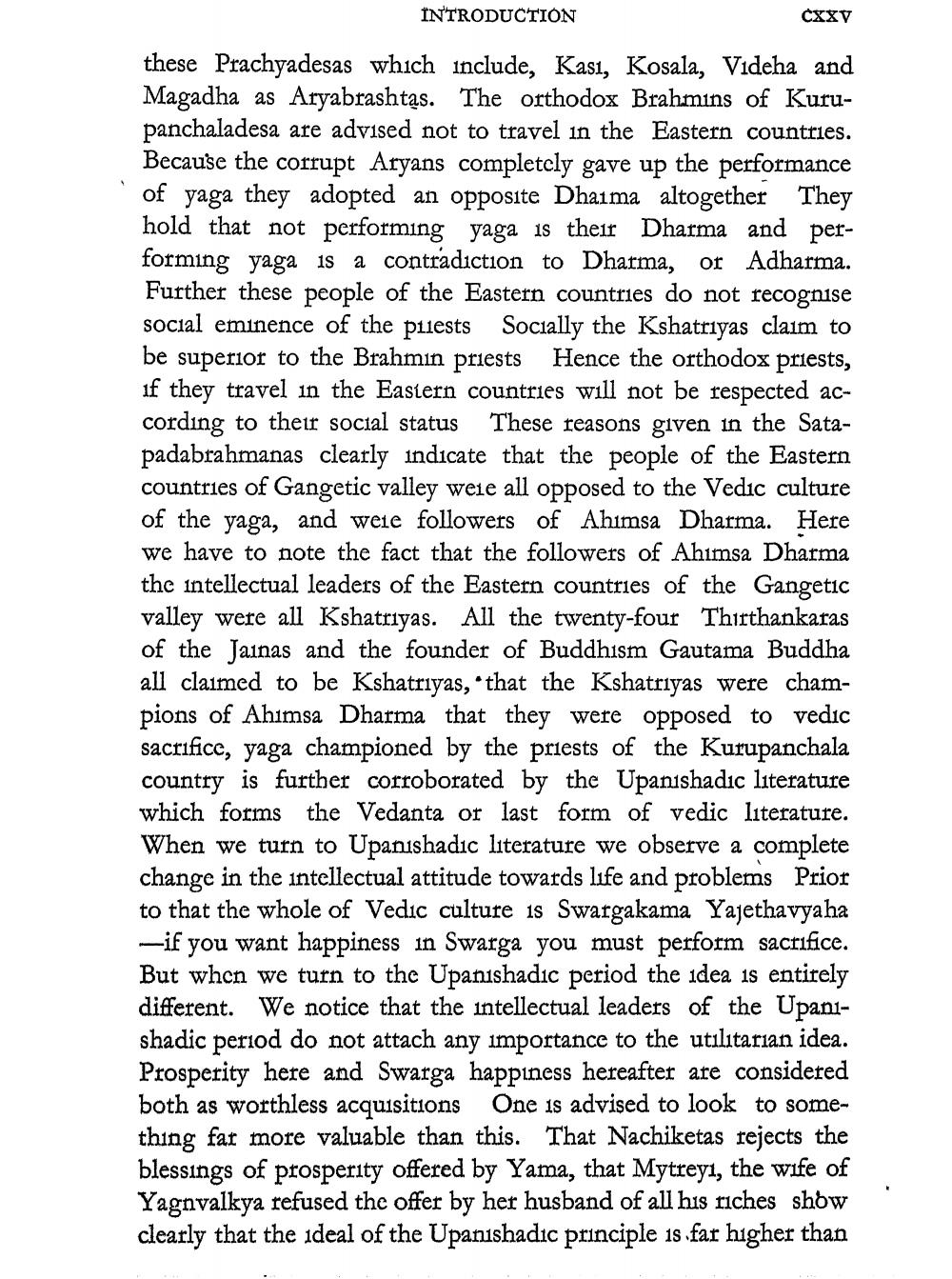________________
INTRODUCTION
these Prachyadesas which include, Kası, Kosala, Videha and Magadha as Aryabrashtas. The orthodox Brahmins of Kurupanchaladesa are advised not to travel in the Eastern countries. Because the corrupt Aryans completely gave up the performance of yaga they adopted an opposite Dhaima altogether They hold that not performing yaga is their Dharma and performing yaga is a contradiction to Dharma, or Adharma. Further these people of the Eastern countries do not recognise social eminence of the priests Socially the Kshatriyas claim to be superior to the Brahmin priests Hence the orthodox priests, if they travel in the Eastern countries will not be respected according to their social status These reasons given in the Satapadabrahmanas clearly indicate that the people of the Eastern countries of Gangetic valley were all opposed to the Vedic culture of the yaga, and were followers of Ahimsa Dharma. Here we have to note the fact that the followers of Ahimsa Dharma the intellectual leaders of the Eastern countries of the Gangetic valley were all Kshatriyas. All the twenty-four Thirthankaras of the Jainas and the founder of Buddhism Gautama Buddha all claimed to be Kshatriyas, that the Kshatriyas were champions of Ahimsa Dharma that they were opposed to vedic sacrifice, yaga championed by the priests of the Kurupanchala country is further corroborated by the Upanishadic literature which forms the Vedanta or last form of vedic literature. When we turn to Upanishadic literature we observe a complete change in the intellectual attitude towards life and problems Prior to that the whole of Vedic culture is Swargakama Yajethavyaha -if you want happiness in Swarga you must perform sacrifice. But when we turn to the Upanishadic period the idea is entirely different. We notice that the intellectual leaders of the Upanishadic period do not attach any importance to the utilitarian idea. Prosperity here and Swarga happiness hereafter are considered both as worthless acquisitions One is advised to look to something far more valuable than this. That Nachiketas rejects the blessings of prosperity offered by Yama, that Mytrey1, the wife of Yagnvalkya refused the offer by her husband of all his riches show clearly that the ideal of the Upanishadic principle is far higher than
CXXV




